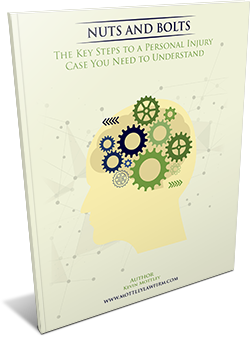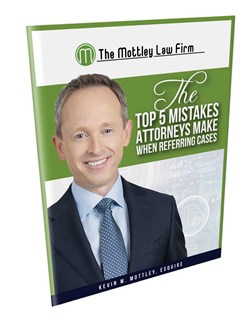We’ve all seen it. Road rage!
Someone cuts off someone else on the interstate, which leads to some sort of retaliatory maneuver from the person who was cut off.
Commercial truck drivers are just as capable of getting angry in traffic as anyone else, which raises the question: Are trucking companies responsible if one of their drivers engages in a road rage incident and injures someone?
I am in Virginia, so I naturally look at that question under Virginia law. For years, I have thought the answer is yes. This belief was grounded in the case Gina Chin & Assocs., Inc. v. First Union Bank, 260 Va. 533 (2000), a case involving misconduct by a bank teller and the extent of the bank’s liability for the misconduct, as well as other older cases supporting that theory.
In Gina Chin, the Supreme Court of Virginia held that “the motive of the employee committing the act complained of is not determinative of whether it took place within the scope of employment relationship. . . . Rather, the issue is whether the service itself, in which the tortious act was done, was within the ordinary course of such business.” Id. at 543. However, "the employee's improper motive is not irrelevant to the issue whether the act was within the scope of employment. Rather, it is merely a factor to be considered in making that determination, and, unless the deviation from the employer's business is slight on the one hand, or marked and unusual on the other, but falls instead between those two extremes, the question is for the jury." Id. at 543-44.
But in more recent years, our Supreme Court has drifted away from the law stated in Gina Chin.
It happened in Parker v. Carilion Clinic, 296 Va. 319 (2018), another case involving intentional misconduct by an employee. The Court lamented that its respondeat superior and "scope of employment" jurisprudence, including Gina Chin, was fraught with “doctrinal vagaries.” It sought to settle once and for all.
Citing the Restatement of Agency, the Court essentially abandoned the Gina Chin rule and held that, “[a]n employee’s act is not within the scope of employment when it occurs within an independent course of conduct not intended by the employee to serve any purpose of the employer.” Id. at 340 (emphasis added). By its very nature, an intentional tort committed on the job by a company employee seems to have no hope of meeting that requirement.
This year, Virginia’s General Assembly passed a law walking the Parker rule back a bit, but only in certain contexts involving “vulnerable victims,” a term that is defined by the statute. I encourage you to read the new statute yourself, codified at Virginia Code § 8.01-42.6, to understand what a vulnerable victim includes. A victim of a tractor-trailer driver’s road rage does not seem to qualify.
Using the language from Parker, a trucker who intentionally attacks another motorist in a road rage situation would not seem to do so with the intention of “serving any purpose of his employer.” I’m not saying that this bar can never be met, and I have some ideas of my own for how to avoid Parker if I’m ever in the position of representing the victim of a tractor-trailer road rage incident. (A lot of defense lawyers read this newsletter, so I’ll keep my thoughts to a minimum for now.)
Perhaps something developed in discovery will allow a good lawyer to meet the burden of proving that an intentional road rage incident actually was serving the purpose of the employer. But it is obviously more challenging to do so now than it was under Gina Chin, and a practitioner needs to be aware of the trap Parker sets.
In my firm, we routinely handle cases in which we represent individuals injured in tractor-trailer and other commercial motor vehicle accidents. If you would like to discuss one of these cases, either as an outright referral or as a co-counsel arrangement, please contact me.





